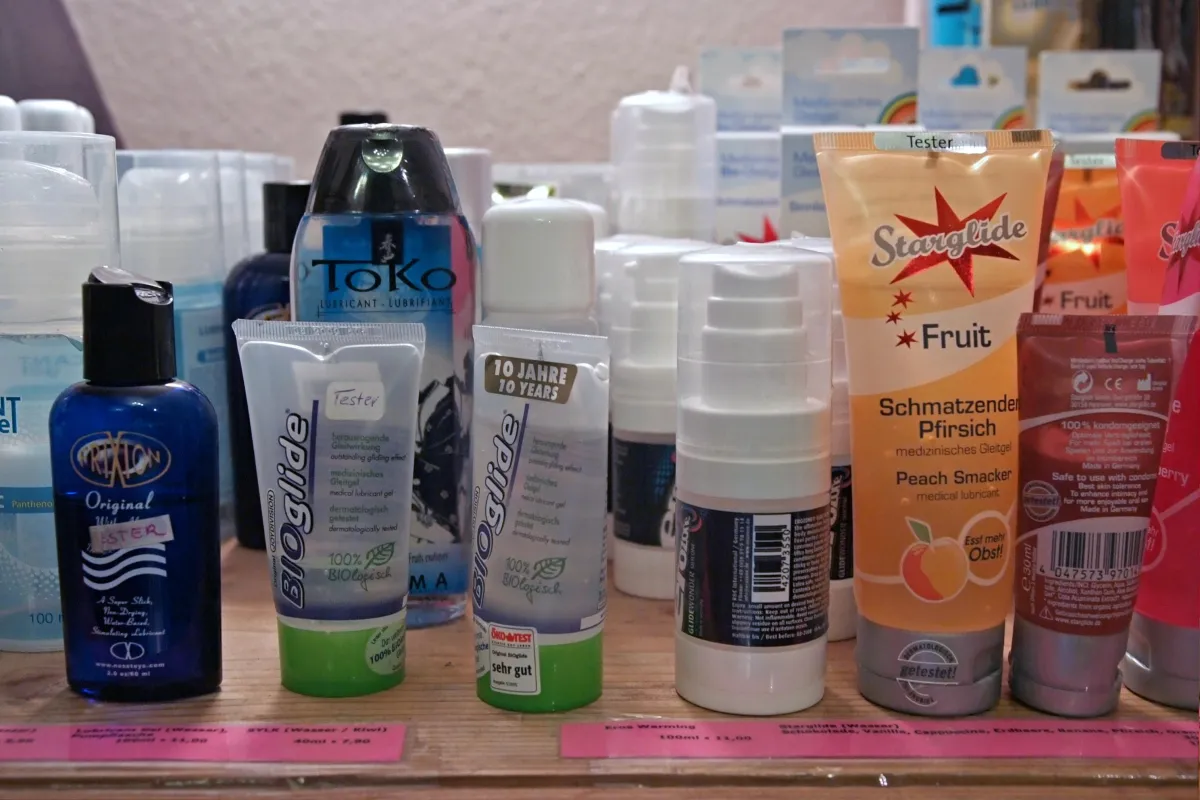
Choosing the right lubricant: A guide
By Pelvic Physio Caitlin Shepherd
"When it comes to personal care products, not all are created equal, and lubricants are no exception."
While they're often seen as a simple solution to enhance sexual pleasure or alleviate discomfort, the reality is that many lubricants can do more harm than good, especially when it comes to the delicate tissues of the vagina or rectum.
At Vital Core Physiotherapy and Pelvic Health, we understand the importance of choosing the right lubricant for your needs. Here's what you need to know to make an informed decision:
The Pitfalls of Common Lubricants
Many commercially available lubricants contain ingredients that can irritate or even damage vaginal cells. Parabens, commonly found in these products, have been linked to carcinogenic effects and can disrupt the delicate pH balance of the vagina, leading to increased susceptibility to infections like thrush. Even some "water-based" lubricants, often considered safe, may contain ingredients that can cause irritation or infection. For instance, KY Jelly, a well-known lubricant, can dehydrate the vagina and increase the risk of STIs, thrush, and irritation.
Who Benefits from Using Lubricant?
Lubricants aren't just for enhancing sexual pleasure. They can also provide relief for various conditions, including menopause-related vaginal dryness, pelvic pain disorders like vaginismus and vulvodynia, and aiding in the use of toys or dilators. Additionally, lubricants can be beneficial for individuals undergoing cancer treatments, those with autoimmune disorders, and anyone seeking to make sex more comfortable and enjoyable.
Choosing the Right Lubricant
When selecting a lubricant, consider your specific needs and preferences. Are you using it for solo use, with a partner or multiple partners, for contraception, with the presence of trainers, toys, condoms or other products, for vaginal, anal or oral sex. It is also important to consider what stage of life you are in. A vagina in a lower oestrogenised state, for example in menopause or while breastfeeding, may have a higher PH and therefore may interact with water-based lubricants differently, or perhaps require something gentle or moisturizing.
There are three main categories of lubricants:
Water-based Lubricants: Versatile and safe, but quality varies. Look for options free from parabens and glycerine to avoid disrupting vaginal pH.
Silicone-based Lubricants: Provide long-lasting moisture and are safe for sensitive tissues. However, they may not be compatible with silicone toys.
Oil-based Lubricants: Natural options like coconut or olive oil can be effective but may not be compatible with condoms or silicone toys.
Harmful Ingredients to Avoid
Be wary of lubricants containing harmful ingredients such as parabens, glycerine, and propylene glycol, which can disrupt vaginal pH and increase the risk of infections. Generally, avoid flavoured, heated or cooling lubes, and always steer clear of anything glittery, tingly or scented, as these can irritate the delicate vaginal tissues.
Recommendations for Safe and Effective Lubricants
For a safe and enjoyable experience, here are some recommended lubricants:
Water-based: Look for options like Bien, Silk, YES, or Sliquid Organics Natural, which are paraben-free, silicone device and condom-safe.
Silicone-based: Uber Lube and Sliquid Silk are excellent choices for long-lasting moisture without disrupting pH balance whilst also being condom safe.
Oil-based: Olive and Bee or YES OB offer natural lubrication but avoid use with condoms or silicone toys.
Conclusion
Choosing the right lubricant is essential for maintaining vaginal health and enhancing sexual pleasure. By avoiding harmful ingredients and selecting a lubricant tailored to your needs, you can ensure a comfortable and enjoyable experience every time. Have a discussion with your pelvic floor physiotherapist if you would like more information to help you select the right lubricant for your needs.
Ask a question of Vital Core Physiotherapy
Fill in the form to request a Call From Our Team
One of our team will call you for FREE and answer any questions or concerns you may have about your condition
© 2023 Vital Core Physiotherapy





